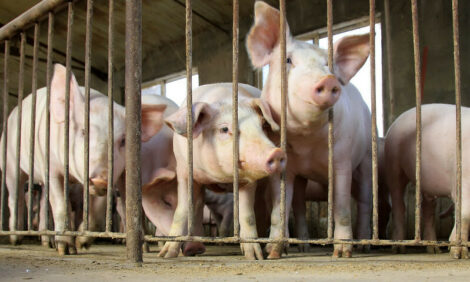



Weekly Overview: How to Cut Pig Feeding Costs, New Approach to Animal Welfare
GLOBAL - Precision feeding offers opportunities for significant feed savings in both the breeding and feeding herds, according to two speakers at a recent conference in the UK. Other research publicised in the last week highlights the need to look at the whole animal in welfare studies and the first group has completed the exome sequence of the pig.Want to save on feeding costs? (Who doesn't?) The answer may lie in precision feeding - meeting the exact nutrient requirements of sows and finishers through bespoke feed rations.
This was the focus of two keynote speakers at the recent BPEX Innovation Conference., who cited key benefits of lowering feed costs per pig, as well as a reduction in labour intensity and less feed wastage. As a result, overall feed savings of up to 10 per cent were identified, although the systems demand significant initial investment.
Dr Francoise Wemelsfelder, animal behaviourist and welfare scientist at Scotland's Rural College, has developed new scientific approaches to the study of animals as whole beings, bringing insights from philosophy of mind and social psychology and anthropology into the study of animal emotion.
Also in the UK, the prospects for food and farming in the United Kingdom, are promising with export markets opening up and global demand for food rising.
This was the core message from junior agriculture minister, George Eustice, at the opening of the Livestock Event in Birmingham last week.
Mr Eustice said that with a rising global population demand for food is expected to increase by 60 per cent by 2050. For the UK, recently new markets for beef had been opened in Japan, and the market for pig meat exports to China had recently opened.
The exome sequence of the pig has been completed for the first time by Scottish researchers collaborating with pig genetics company, PIC.
The European Union has called on the World Trade Organization to rule over a dispute concerning the Russian ban on imports of pigs and their genetic material, fresh pork and certain other pig products from the EU.
The products have been banned by Russian because of a limited number of cases of African Swine Fever (ASF) in certain areas of Lithuania and Poland, close to the border with Belarus.
In the last week, Russia has reported three outbreaks of ASF in domestic pigs - two in small village herds and another in a commercial herd, involving a total of more than 23,400 animals. Three wild boar have also tested positive for the ASF virus in a second report within the last week. All these outbreaks are on the far west of the country.
Latvia has reported that more wild boar have tested positive for the ASF virus, all of them in the east of the country, in counties that have reported previous outbreaks.
There has been an outbreak of foot and month disease in pigs from a small herd in Jiangsu province in eastern China.
And finally, on porcine epidemic diarrhoea (PED), the number of US farm samples testing positive for the virus has broken through the 7,500-barrier in the last week but the trend in new positive results continues downwards. In Mexico, Genesus reports that the number of new PED outbreaks has "diminished dramatically".
An increase in the FAO Food Price Index for meat in the last month has been attributed to short supplies as a result of losses of pigs from PED in several countries.






